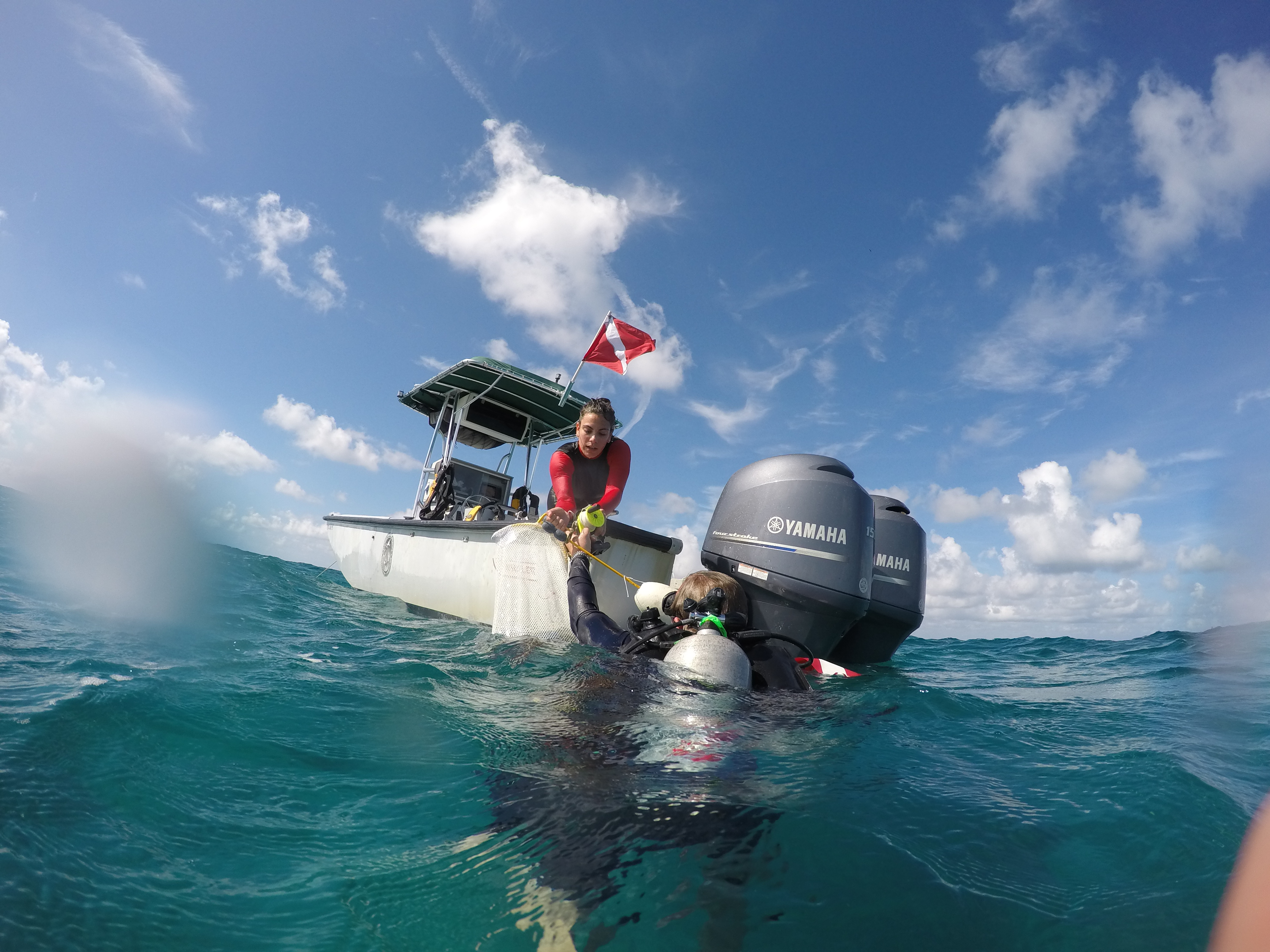If you just want to study the ocean, pick any university. But if you want to explore it, film it, tag it, cross it — choose Rutgers University–New Brunswick. At its Department of Marine and Coastal Sciences, the blue economy is your classroom. Here, experiential learning is less of a nice-to-have and a priority.
For example, a team of undergrads made history navigating an underwater robot across the Atlantic — an achievement recognized by the White House, the Spanish government, and the Smithsonian, and captured in a full student-produced film. They develop the confidence to collaborate and work as a team on such adventures through the exposure they gain individually.
Nikki Nikolova explored everything from piloting undersea robots to producing films on underwater volcanoes, with research opportunities that took her all the way to Hawaii. Jim Fiorendino’s Rutgers journey spanned from tagging shad in the Raritan River to braving Antarctic extremes. His work at the Haskin Shellfish Research Lab and in polar regions laid the foundation for a career grounded in grit and field science.
As an undergraduate, Katie Todoroff contributed to groundbreaking research at Palmer Station in Antarctica, helping reveal how ocean physics determines where Adélie penguins feed — a rare opportunity for someone still completing a bachelor’s degree.

Source: Rutgers University
For Oliver Ho, it started with a simple class cruise down the Raritan River during his freshman year. Towards the end, he asked Professor Scott Glenn a simple question: “How can I get involved in research?” Professor Glenn’s answer was just as simple — “You just have to ask.” This answer led Ho to a summer tracking ocean underwater gliders for the Challenger Mission, using real-time data tools and working alongside visiting researchers from the Canary Islands’ PLOCAN programme.
“During that summer, me, Nilsen, Reuben, and Alberto (the visiting students from the Canary Islands) went on two local glider deployments and got to know one another, to a point where Alberto offered me a room in his house, should I ever visit the Canary Islands,” he shares.
Hence, graduate Colin Dobson’s advice to aspiring marine science students looking to get involved in cutting-edge research: “I strongly recommend that you choose Rutgers,” he says. “The opportunities for undergraduates of the Department of Marine and Coastal Sciences are practically limitless.”
Dobson’s words carry weight –– he was hired by the US Naval Oceanographic Office right after graduation. His peers have done just as well. Jim Fiorendino is now pursuing a PhD at Texas A&M University, working in the lab of top marine biologist Dr. Lisa Campbell. Frank McQuarrie went from student to teacher, inspiring the next generation as a Marine Science Instructor at the Catalina Island Marine Institute before completing a PhD.

Source: Rutgers University
All three graduates pursued the Department’s Marine Science undergraduate programme –– a qualification that blends classroom learning, research, and real-world impact.
The credit-intensive major combines biology, chemistry, physics, geology, mathematics, and data science — giving students both depth and breadth. It emphasizes hands-on learning, communication skills, scientific literacy, and independent research through an experience-based education requirement.
The best part? It is just as flexible as it is interdisciplinary, giving students the freedom to specialise in areas that match their passions and career goals. The Marine Biology / Biological Oceanography track explores how marine organisms function, interact, and respond to environmental changes. The Directed Marine Studies track is similar but includes a required minor or certificate programme.
The Marine Chemistry track covers everything from the basic composition of seawater to cutting-edge environmental issues. Those pursuing Physical Oceanography study the movement of water on a global scale — from deep ocean currents to coastal dynamics. The Marine Geology track brings together earth science disciplines to explore everything from plate tectonics to past climate change.
For more advanced learners, the Department of Marine and Coastal Sciences offers both Master of Science and PhD degrees that bring together cutting-edge research in physical, biological, chemical, geological, and operational oceanography. There’s also a Master’s in Operational Oceanography –– a professional programme designed to equip students with the skills to monitor, model, and manage ocean systems using real-time data and emerging technologies being sought after by marine industries.

Source: Rutgers University
Like undergraduates at Rutgers, all graduate students work alongside faculty on various projects — tracking long-term changes in the Antarctic, deploying advanced underwater instruments in coastal zones, analysing biodiversity through marine molecular biology, bioengineering, modelling fjord dynamics, or studying deep-sea hydrothermal vents.
“Studying Marine Science at Rutgers has provided me with more hands-on experience and valuable scientific knowledge than I could have ever imagined,” says Emily Busch, who pursued both a bachelor’s and master’s at the Department of Marine and Coastal Sciences.
“Although I transferred during a global pandemic, just one year here allowed me to get my hands dirty and become comfortable working with marine equipment. From collecting water samples on the Raritan Bay, to running tests in the lab and analysing our data, I truly believe Rutgers provided me with the skills necessary to let me excel in this field.”
Follow the Rutgers Department of Marine and Coastal Sciences on Facebook and YouTube










